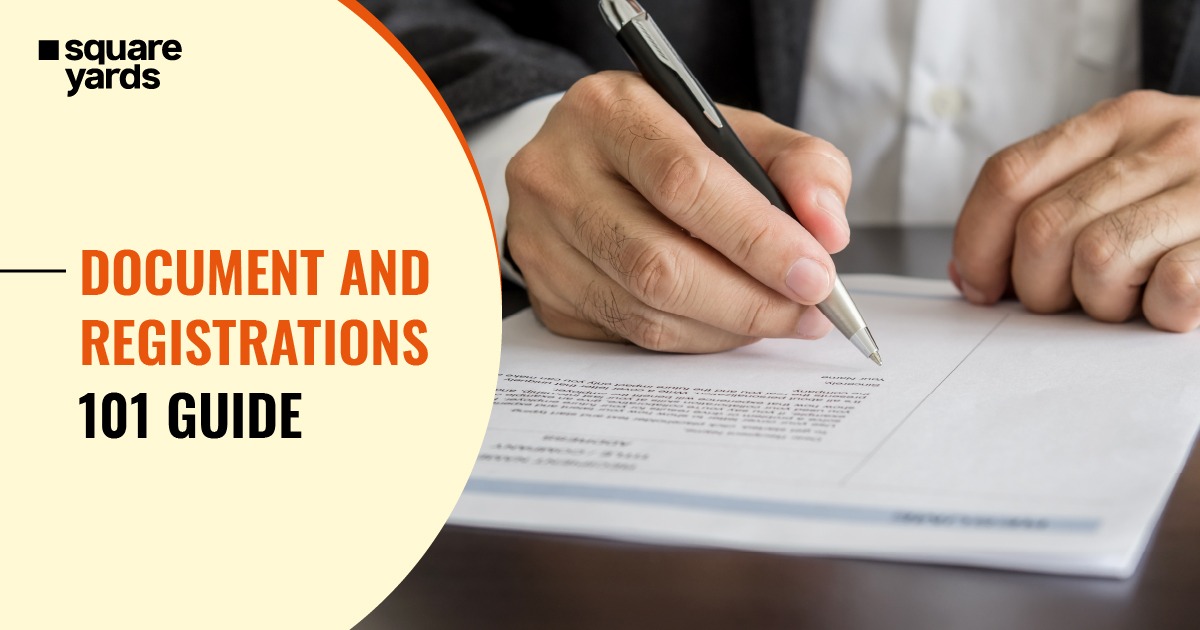If you are planning to buy a property in India, it's important to understand the process of property registration and the documents required for a smooth and legally compliant transaction. Property registration is a crucial step that establishes legal ownership and safeguards your rights as a property owner.
In this article, we will provide you with a comprehensive guide on the essential documents needed for property registration in India and explain the significance of each document. Let's dive in and ensure that you are well-informed about the registration process!
1. Sale Deed
The sale deed is the most important document in property registration. It is a legal document that establishes the transfer of ownership from the seller to the buyer. The sale deed contains details such as the property description, purchase price, terms and conditions of the sale, and the identities of the buyer and seller.
It is crucial to thoroughly review the sale deed and ensure that all the information is accurate and in accordance with your agreement with the seller.
2. Title Deed and Chain of Documents
The title deed is a document that proves the seller's ownership rights over the property. It establishes the seller's right to transfer the property to the buyer. Along with the title deed, it is important to obtain a complete chain of documents that trace the ownership history of the property. This chain of documents includes previous sale deeds, gift deeds, partition deeds, and any other legal instruments that have been used to transfer the property over the years. Verifying the title deed and the chain of documents ensures that the property has a clear and marketable title.
3. Encumbrance Certificate
An encumbrance certificate (EC) is a document that certifies that the property is free from any monetary or legal liabilities such as mortgages, loans, or pending litigation.
The EC is issued by the Sub-Registrar's Office and provides details of all transactions, registrations, and encumbrances on the property for a specified period. Obtaining an encumbrance certificate is crucial to ensure that the property you are purchasing is not burdened with any legal or financial obligations.
4. Property Tax Receipts
Property tax receipts are essential documents that establish that the previous owner has paid all the property taxes up to the date of transfer. It is important to obtain the latest property tax receipts to ensure that there are no outstanding dues. Non-payment of property taxes can result in legal issues and additional financial liabilities for the new owner.
5. Building Approval Plan and Occupancy Certificate
If you are purchasing an under-construction or newly constructed property, it is important to obtain the building approval plan sanctioned by the local authorities.
The building approval plan ensures that the construction has been carried out in accordance with the applicable rules and regulations. Additionally, for completed properties, it is crucial to obtain the occupancy certificate. The occupancy certificate certifies that the building is fit for occupancy and has been constructed as per the approved plan.
6. Power of Attorney
In certain cases, the property may be sold through a power of attorney (POA) instead of the owner being physically present for the registration process. If the sale is being executed through a POA, it is important to obtain a duly registered and notarized POA document.
The POA should clearly state the extent of authority given to the attorney and the purpose for which the property is being sold.
Conclusion
Property registration is a significant step in acquiring legal ownership and protecting your rights as a property owner. By understanding the essential documents required for property registration in India, such as the sale deed, title deed, encumbrance certificate, property tax receipts, building approval plan, occupancy certificate, and power of attorney, you can ensure a smooth and legally compliant transaction. It is important to review these documents carefully, seek legal advice if required, and verify the authenticity and accuracy of the information provided. Registering your property with the appropriate documents not only establishes your ownership but also provides peace of mind and security for your investment.




